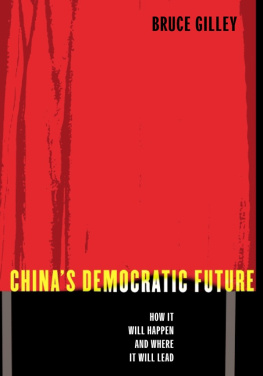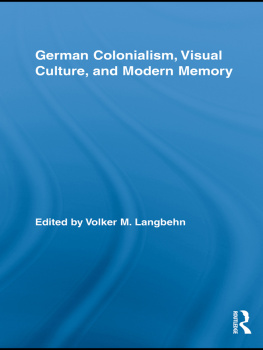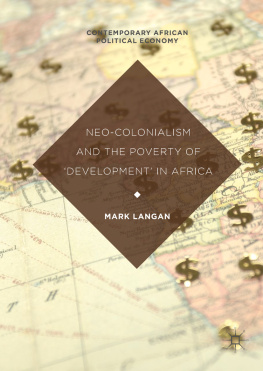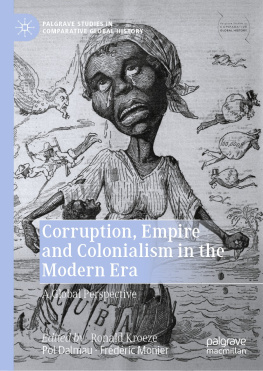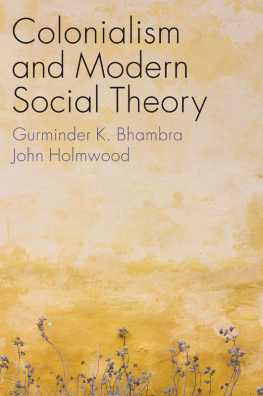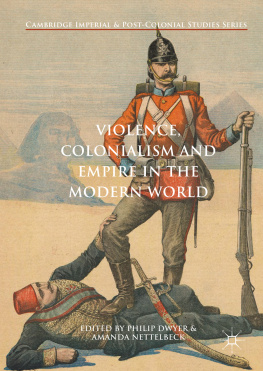Contents
Guide
In Defense of German Colonialism
And How Its Critics Empowered Nazis, Communists, and the Enemies of the West
Bruce Gilley
Author of The Last Imperialist
PREFACE Black Berliners and Their White Supporters
I became interested in German colonialism while writing The Last Imperialist, a biography of the British colonial governor Sir Alan Burns published in 2021. As a young administrator in West Africa, Burns was sent into combat against neighboring German colonies when the Great War began in 1914. Despite being vastly outnumbered, the African natives fighting for Germany were tenacious and loyal. Native support for the Germans was so vigorous that the young Burns was taken out of the field and sent to British Lagos to recruit more soldiers. All this seemed puzzling to me because, having read what passes for scholarship on German colonialism, I believed that Africans (as well as the Arabs, Chinese, and Samoans) hated the Germans. But if that were so, then why did these peoples rally behind their German governors during the war? In East Africa, the natives did not lay down arms until word came that the fighting had ended in Europe. In West Africa, they followed their colonial masters into exile in neighboring Spanish territory and petitioned world leaders to restore Berlins authority. Such stubborn facts are incomprehensible to the modern mind, trained as it is to think of European colonial rule as loathsome and unwelcome.
My interest in this footnote to history caught the attention of colleagues in Germany, where calls to decolonize the countrys understanding of its brief colonial era were running wild. In 2019, I offered an alternative account of this era to legislators and staff of the aptly named Alternative for Germany (AfD), the largest opposition party in the Bundestag. Despite diligent efforts to paint it as a reincarnation of Germanys evil past, the AfD is the only political party in Germany that still believes in the Western tradition. (It is also Israels most staunch and outspoken defender.) The response to my talk revealed the suppurating sore of anti-colonial activism in Germany. Woke warriors in the city organized a protest outside the Reichstag building for black Berliners and their white supporters.
About fifty white Germans and perhaps two black people (who may have been tourists) took part in the ritual. The usual mesh of slogans about unrelated issues appeared. One had to notice the colonialism kills signboard to guess the focus of the evenings chanting. There is no such thing as good colonialism! a young woman wailed into a bullhorn, demanding that my talk be cancelled. I might have joined the protest to partake of the Christmas spiced cookies but feared that I might be decolonized in the resulting melee.

Activists protest the authors talk on colonialism inside the Reichstag Building in 2019. The sign on the right reads: Colonialism Is Murder. Authors collection
In the media, meanwhile, prominent anti-colonial scholars in Germany denounced the talk and insisted that its contents be censored lest any new ideas percolate into the public mind. This is a conscious provocation! declared one prominent scholar. It shows that the federal government has failed to make progress on this important issue of historical guilt and instead allowed it to become a partisan issue up for debate.
Inside the building, we had a civilized, dare I say colonial, discussion. One AfD staffer who is a native of Benin rebuked the Woke white youth outside the building for their arrogance in telling black and brown people what to think about colonial history. All people in Africa know that what you say is true, the African man said to me at the gathering. Germany has done a lot of good in Africa. So I want to thank you for your honest words. The talk cost me the friendship of a dear Jewish colleague in the United States who, despite his vast learning, fell easily for the charges that I was consorting with neo-Nazis and promoting Prussian militarism. Fortunately, the AfD had invited members of the press to the gathering, and their coverage suggested a growing fatigue with such nonsense.
My talk was well received by the German public and became the basis for a German-language book, Verteidigung des deutschen Kolonialismus (In Defense of German Colonialism) published in 2021. In Germany, as elsewhere in the West, the educated public is broadly liberal, tolerant of competing views, and determined to uphold the Western heritage. It is rightly suspicious of the drivel that passes for academic history. As a result, my book is now used widely in independent high schools in Germany by teachers who engage in the daring feat of exposing their charges to more than one point of view.
This revised and expanded English edition takes into account further research as well as critical responses to the German book. It is twice as long as the German version and significantly expands on the thesis that the termination of German colonialism was a major contributing factor to the rise of the Nazi horror in that country and more generally laid the foundations for the series of illiberal movements in Germany that followed, first in the communist-inspired movements of the Cold War and then in the debilitating Woke activism of our days. All this, I argue, is critical to understanding the great hole that now stands at the center of Europe. Rebuilding Western civilization requires many hands. One of the most important of these will seize back an objective understanding of Germanys brief colonial era.
I am grateful to Regnery and to Harry Crocker III, author of The Politically Incorrect Guide to the British Empire, for bringing this politically incorrect guide to German colonialism to English language readers.
Bruce Gilley
Portland, Oregon
September 15, 2021
CHAPTER 1 Laying the Prussian Lash on German Colonial History
I n 2019, anti-colonial activists in Berlin erected a plaque outside the former headquarters of Germanys colonial office. The plaque honored the life of the black African Martin Dibobe, who at the age of twenty in 1896 was sent from the colony of German Cameroon to participate in the Berlin Trade Fair. The activists considered Dibobe one of the colonial projects victims, but he was in fact one of its most avid supporters. Seeing that life was better in Germany than in Africa, Dibobe remained after the fair. He was offered a job with the Berlin train system, in which he worked his way up to the position of senior driver, becoming something of a local celebrity. In May 1919, when Germany was about to be formally stripped of its colonies during negotiations at Versailles, Dibobe wrote to the last German colonial minister Johannes Bell hoping for a miracle:
The people cling to Germany with all their energy and firm conviction. The only wish of the natives is to stay German. The Socialist [Party] represents their interests in the Reichstag and the natives have been recognized as citizens by the former imperial government. The natives cannot wish for a better lot than the [1919 Weimar Constitution] has brought them. We reaffirm to the government all of our dedication as well as our unbreakable, firm loyalty. With this appeal we assure the government that we want to remain German.


